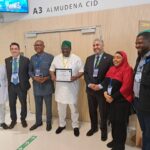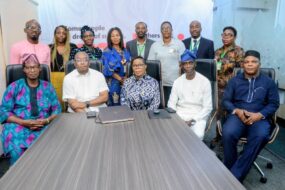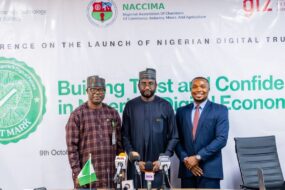
In an effort to have accurate cancer statistics and database in the country, the National Institute for Cancer Research and Treatment (NICRAT), has concluded plans to link cancer registry data with hospital records, mortality databases and screening programmes in the country. This is to ensure accuracy and effectiveness.
The Director General of NICRAT, Prof. Usman Malami Aliyu, disclosed this while declaring open a two-day Basic Cancer Registry Training and induction for the newly established population-based cancer registries in Abuja, recently.
In addition to the linkage of the various records, he further revealed that the Institute will soon engage in massive awareness creation and stakeholder engagement strategies.
The training, Prof. Malami noted, was deliberately designed in collaboration “with our partners to build the capacity of our registrars, standardize our data collection process and ensure data quality and accuracy at all times.
“The aims of the training, therefore, include the strengthening of cancer surveillance; guide new registries in using appropriate software such as Canreg5, and as well as introduce users to confidentiality, data protection laws and ethical principles in cancer registration.”
The NICRAT Director General further explained that: “As you may be aware, a population-based cancer registry is a systematic data collection system that records all new cases of cancer occurring in a well-defined population, typically within a geographic region such as a city, state or country.
“In Nigeria, population-based cancer registries are established in different regions to collect comprehensive data on all new cancer cases diagnosed in a defined population; ensure high data quality through standardized coding; monitor cancer trends, provide data for health service planning, promote awareness and evaluate effectiveness of cancer interventions.
“As the agency of the government of Nigeria in charge of cancer control in Nigeria, NICRAT is providing the needed oversight to ensure that the above objectives are achieved.”
He commended the commitment and support of partners who, according to him, have shown massive interest in organizing the training, vowing that NICRAT will continue to “partner with you at every given opportunity so that together, we can develop effective population-based cancer registries in Nigeria.
“The roles of the Federal Ministry of Health & Social Welfare, International Agency for Research on Cancer (IARC), the African Cancer Registry Network (AFRCN) are highly commendable.
“I equally acknowledge the funding received from the Bloomberg Philanthropies, the WHO Country Office and Roche which made it possible for us to hold this training.”
Speaking, the representative of Roche Products, Mr. Babarinde Oloyede, said that his organization was delighted to partner with NICRAT in the fight against cancer.
“We are committed to fulfilling our shared responsibilities in the cancer space,” he said, wishing the participants a successful workshop.
















